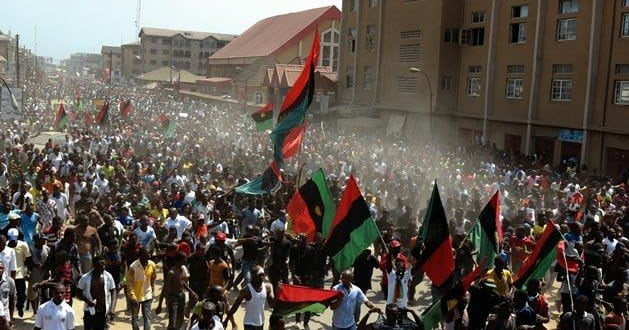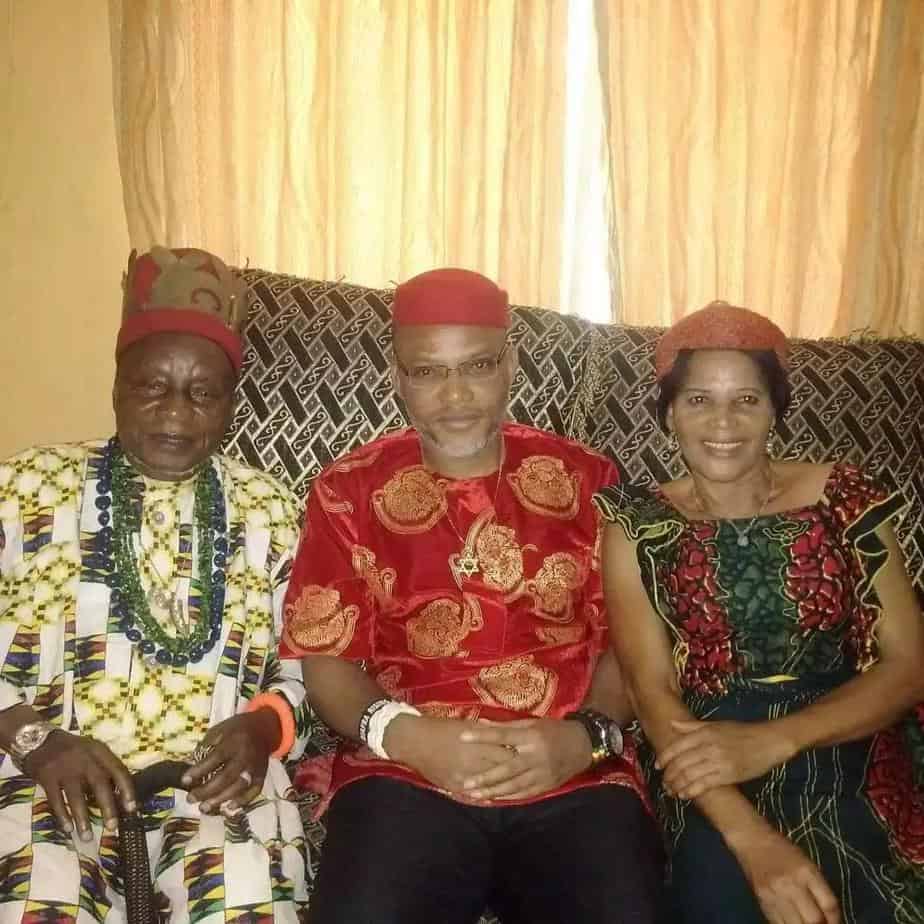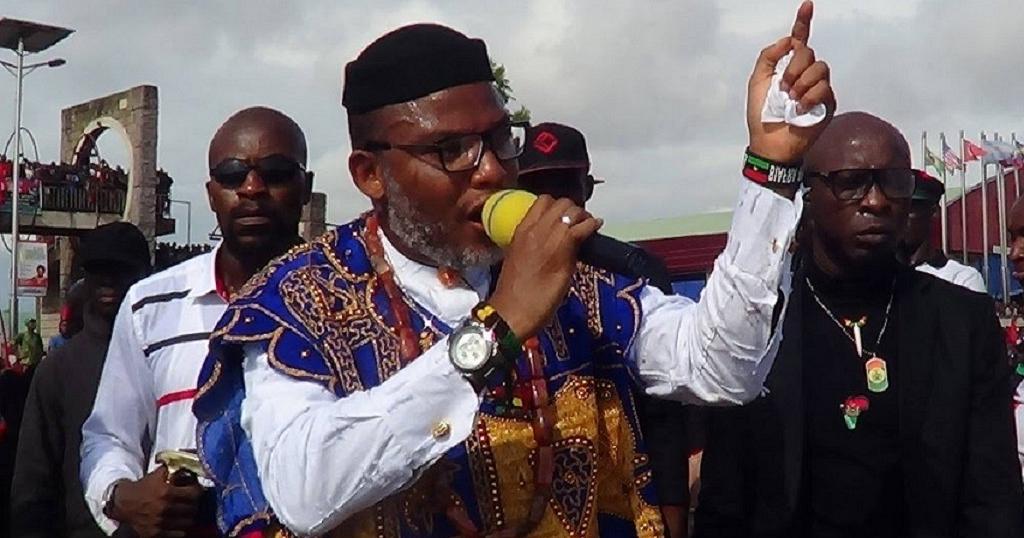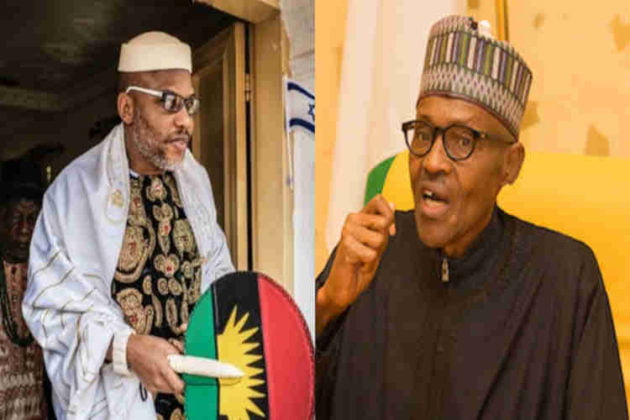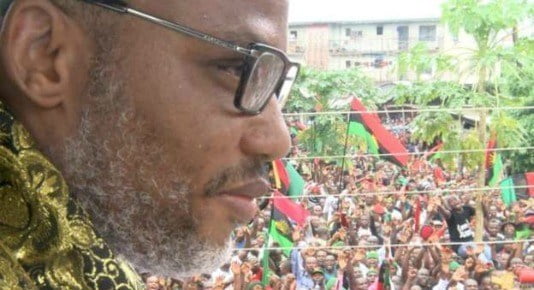January 15, 2020 was the 50th anniversary of the end of the fratricidal war in Nigeria known as the Nigerian Civil War. It was a war fought between the government of Nigeria and the secessionist state of Biafra from July 6, 1967 to January15, 1970. Biafra represented nationalist aspirations of the people of Biafra whose leaders felt they could no longer coexist with an alleged northern-dominated Federal Government.
Reportedly, the immediate causes of the war in 1966 included ethno-religious riots in northern Nigeria, a military coup, a counter-coup and alleged persecution of Igbo living in the North. Control over the lucrative oil production in the Niger Delta played a vital strategic role.
The Federal Government troops were said to have surrounded Biafra after more than one year of fierce fighting, capturing coastal oil facilities and the city of Port Harcourt. The blockade imposed during the ensuing war led to mass starvation. And during the nearly three years of the war, no fewer than 100,000 overall military casualties were recorded, while nearly two million Biafran civilians died of starvation. A former Military Governor of Rivers State, Maj. Gen. Zamani Lekwot (retd.), one of the soldiers who fought during the war, though as a junior officer then, tells SIMON UTEBOR about the war and how Nigeria came out of it
As one of those who witnessed the Nigerian Civil War, which ended in January 1970, how would you describe it?
Civil wars are wars fought by brothers – the Biafrans and Nigerians were brothers. We all attended the same military school; some of us were very good friends which means we knew the same strategies and tactics. Fighting a brother is very difficult but since political disagreements led to it, we had to take up the gauntlet. Having to face our brothers in battle was a very difficult situation but soldiers obey orders.
Nevertheless, that was why Gen. Yakubu Gowon (now retired), the then Head of State, declared it as a police action. So, we carried out our duties; it was unfortunate that many innocent people died on both sides. But the good thing today is that Nigeria is one and for the first time in history, there was no treason trial after the war. Some of the Biafran officers and other ranks were absolved into the system.
What was your experience in the war?
My experience is not different from other people’s experience. Seizing people and trying to defend yourself and all of that was a terrible experience but we are happy it ended. Some of us have bullet scars, some lost limbs, and some lost their lives. I cannot give you more details because it is against our convention to start putting experience in writing until at least over 100 years; that is the rule.
Do you think the war was necessary or should it have been avoided?
It could have been avoided if communication had not broken down. I was a junior officer then but we learnt that a meeting was called in Benin, the fourth area command. The Army had area commands; Benin was the fourth area command. If Chief Chukwuemeka Odumegwu Ojukwu (leader of the breakaway Republic of Biafra between 1967 and 1970) had attended that meeting, I think the war would not have broken out. Why? I learnt that northern political leaders were ready to go for confederation but Ojukwu did not attend, so the meeting did not take place, until a decision was taken to meet in Ghana in Aburi. Nigerians must have read what happened there.
It was believed that Gowon did not abide by the Aburi Accord that was why the civil war broke out, do you agree with that assertion?
Well, I can’t speak for Gen. Gowon (retd.). People can find out from him what the details are. As I said earlier, I was a junior officer then. But I read an interview in which Philip Asiodu said the late Alison Ayida and himself as alumni of King’s College went to Enugu to see Ojukwu and begged him to reconsider because going to war or seceding would not solve any problem and according to that interview, Ojukwu refused and told them that the regions would be dissolved.
The run-up to the war also contributed to it. The way the first coup was carried out with the killing of innocent people, followed by the reactions that led to more killings, poisoned the atmosphere; but if communication had not broken down and the benefit of the doubt was given, I think the war could have been avoided.
After the war, Gowon instituted the policy of 3Rs – reconciliation, reconstruction and rehabilitation – as part of the measures to heal the wounds inflicted by the war, but the people of South-East extraction, particularly the Igbo, feel that they are marginalised in Nigeria. Is the allegation of marginalisation justified?
I cannot answer that question because I have not discussed with any of my friends there. We are running a democracy in which there is freedom of expression, so if they are marginalised, we have to define the marginalisation because I know that some Igbo officers were reabsorbed into the military. Some of them were my friends and colleagues and there is no dichotomy between us, we meet and talk. Second, in my village, there are some Igbo traders buying and selling. Some of them marry our daughters, which is proper. This is the type of Nigeria we are aspiring to. As for the type of the marginalisation, is it political, is it economic, I don’t know, so I am not in a position to address the question properly and it should be channelled to the relevant quarters.
It is believed that some of the issues that propelled the civil war are still with us today. Do you agree with that?
Yes, the killings are across the board by bandits and that is an offshoot of keeping our borders open to all manner of people to come in. Somebody stated that the fall of Libyan strongman, Muammar Gaddafi, unleashed the mayhem we are seeing. The kidnapping, the killings are done by bandits who stay in the bush, attack villages, destroy them, loot whatever they can and kill people. It is a failure of our security system. If things were working the way they should, through intelligence, we should be able to know or have an idea of when a strike is about to take place so that preemptive measures could be taken. I am happy that the government has started doing something positive about it. For example, the closure of the borders is in order because our country has become a dumping ground for all manner of goods and shady characters and since the borders were closed, the killings and banditry appear to have gone down, so we have to rise to the occasion properly and jointly. If you step into any of our neighbouring countries, you will know they have law and order– security people will interview you, but here it looks as it’s free entry for all. So, getting our acts together is what we need in order to remove these unsavoury activities that are making life unsafe.
What in your view do you think were the immediate and remote causes of the civil war?
It is a political question. Ask the politicians. I have not given it a thought.
You have a strong military background and it is argued that Nigeria’s problems, including the war began with the first military coup and subsequent military interventions, do you agree with that argument?
The answer is yes and no. Yes, because of the way and manner the first coup was staged. The first coup was staged by some alumni of the University of Ibadan. Major Adewale Ademoyega (retd.) stated in his book, ‘Why we struck’, that the plan to stage the coup was hatched in UI when they were undergraduates. Since they wanted to stage a revolution, they decided to the use the military as the vehicle. So, when Major Chukwuma Nzeogwu, Major Emmanuel Ifeajuna, Ademoyega and a few others staged their coup, they killed many innocent people, senior politicians, senior military officers and that disrupted the synergy and espirit de corps in the military. Before that time, we were one family. The British left us a very good legacy. Given the nature of our training, officer cadets or civilians drilling the military as ordinary soldiers came from all the provinces in order to reflect national character. Our training imposed on us the need to guard the whole country as our constituencies – no tribal differences, no religious differences – we regarded ourselves as one.
Of course, team work is the hallmark of the military profession. So, that being the case, we were one family but when that coup took place, with the way and manner the killing happened, it disrupted the espirit de corps up to a point.
Two, the coup culminated in dissolving the regions, so the first coup dissolved the region. To the people who say the military started what is haunting us, I say yes, but subsequent military regimes made very serious efforts to restructure the country. For instance, the creation of states gave a sense of belonging to people in the nooks and crannies of the country. The local government reform was introduced by the military in order to create a third tier of the government and then the aim was to make sure resources were sent to them in order to have even development, but unfortunately, some governors are not doing justice to that philosophy, making local governments to be starved of funds.
This January makes it 50 years after the war do you think Nigerians learnt any lessons from the war?
Well, we have a few misguided persons making careless statements. Nevertheless, I believe that we have learnt some lessons. Those of us who took part in the war know what war is. No person in his senses can do anything without putting that into consideration, so I cannot speak for others, but I think some lessons have been learnt. Some good things have been done but what we have to accept jointly and severally is that God created us to cooperate with one another and respect the feelings of one another.
But it looks as if some selfish people put tribalism and religion as the primary things. Yes, these two things are very important, but we must have a platform from which we operate and that is one united and stable country.
Fifty years after the war, there is a general feeling that the Middle Belt and the Southern Nigeria are being reduced to the status of conquered peoples of Nigeria, how do you react to that?
We have a law in respect of federal character and there is a commission in charge. Nigeria is a very complex federation. Everyone cannot get everything they want. What people complaining are saying is that an attempt must be made to ensure equity and justice in everything we say and do and that is the responsibility of the people in power – if what has been happening that culminated in what is being said is because they are not aware. The time has come for the proper thing to be done in order to reduce the grumblings. Everyone likes to be respected and given their dues because life is short, therefore, equity and justice are required.
Japan and Germany bounced back from World War II to become economic giants, what do you think is really wrong with Nigeria?
Well, what is wrong with Nigeria is partly because of lack of vision; lack of objectivity. We have a large pool of educated and talented people and a serious effort must be made to put such people in a position of authority in order to bring about the correct vision and objectivity. There is no reason why what is happening in the country should happen the way it is happening, like insecurity. We have lived together for many years and we know what is right. What is required is the courage of our conviction to stand and do it. So, failure to do that is what has culminated in what people are talking about. We need dialogue and sincerity of purpose; I don’t mean just expressions but purposeful dialogue.
Are you recommending that Nigeria should engage in dialogue to resolve the issues affecting the country?
Yes. The people in authority must listen to what citizens crying out are saying. And that dialogue has already started. Over the years, we have had national conferences. The last one was in 2014 during which the recommendations of all previous reports were compiled and forwarded, and decisions were taken. Unfortunately, the current government has not done anything about it and the problems of the nation are growing from bad to worse. We are a divided country; many people are grumbling. Yes of course, no government can satisfy the needs of everybody but what is required is a concerted effort to do what is right. The best point of departure is devolution of power. As I have said the first coup dissolved the regions and everything was centralised.
Nigeria is a very large and complex country; if power is devolved in order to share between the federal, state and local governments, I believe a sense of belonging will be infused. When everybody participates, ideas will come from all directions and I believe the credible way forward will be found.
What do you think about decentralisation of power considering how much power the Federal Government has?
Look at security, for instance. We have a police force that is well trained but the problem is that they are too few on the ground given the size of Nigeria. Two, the tools they need for effective jobs are a far cry from what should be the case. Crime has gone digital, so fighting crime should also go digital. For instance, we hear that the bandits are well armed. If the people fighting banditry are not equal to the task, then there can be no solution.
The same national conference I was talking about recommended the creation of state police so that such police force can implement the state laws and organise the community police under the auspices of the governors who are the chief security officers because every nook and cranny has peculiar problems which people in Abuja cannot see. Of course, this state police creation recommendation is without prejudice to the Nigeria Police’s mandate to cover the whole country. So, state police, community police can gather information, intelligence and give to the police headquarters in Abuja. In neighbouring countries where they have law and order, that is what they do. If you step into their country, the gendarmes will be the first to get in contact with you to ask you questions. Since the Nigeria Police Force is adequately equipped, involving the state government at that level will make sense because the governors are the chief security officers in their states.
Whatever they do will complement what the Nigeria Police and other security agencies are doing. I have always maintained that traditional rulers must be brought in because they are the people in charge of the rural areas. Once we all work together, I believe that will go a long way to stem the current security threats facing the country.
There are fears that the state governors will manipulate state and community police. Do you believe so?
That will be neutralised with appropriate legislation. The rule of law is what makes things tick anywhere in the world because no human being, irrespective of their status, is above the law. So, once an appropriate legislation is enacted guiding everyone on how to behave, we will get over it.
What do you think about Operation Amotekun launched by South-West governors recently?
As far as I am concerned, it is a good idea because I read somewhere that it is meant to check the current banditry going on. The bandits hide in the forest and they strike wherever they like. I think their primary function is to gather intelligence through surveillance, so when something is going on, they report and the security apparatus at high level can now map a strategy to step in through preemptive action before damage is done. So coordination, monitoring and cohesion are required.
In other states, they have vigilantes. In the North-East, the hunters join hands with the security people in order to salvage the situation. So, I see nothing wrong with it because as I heard, the governors of the South-West put their heads together. I saw the launch on the television, the calibre of vehicles I have seen and the enthusiasm demonstrated by the people means a sign of good things to come.
But the FG has described it as illegal, what do you think about that?
Well, I am not a lawyer. I don’t know what “illegal” means. Is it that no law was enacted before they were inaugurated or what? The fact that they put their heads together to do what they are doing shows that they are filling a vacuum. If the federal might had spread to the area to know what was happening, then there would have been no need for Operation Amotekun. In other communities, they have vigilantes. So, whatever they are doing is to support the police and other security agencies, if nothing else, with information.
It is argued that during the regional system of government, Nigeria fared better than what it has become since that governmental structure was jettisoned. Do you think the regional structure is better?
That is correct because when we were schoolchildren, we saw an effective Native Authority Police. They were people that operated in the rural areas. No young person there misbehaved. The traditional rulers were very powerful – the peasants respected them. Each region had regional house of chiefs where the chiefs used to meet once in a while to extend views and advise the government. There was keen competition and economic scout between the regions. So, there was no fear of domination as we know today; a sense of belonging was infused to every nook and cranny. Of course, the regions then were not perfect – this issue of minorities was still there, which was why the Willinks Commission was published in 1958.
What do you think Nigerian can do to bounce back to reckoning and be respected by the comity of nations as one of Africa’s superpowers?
I believe in restructuring – restructuring means taking a second look at the structure in order to dot the i’s and cross the t’s. The 2014 national conference made some very fine recommendations because those recommendations were based on the recommendations of many other previous reports. So, what the government in power needs to do is to check the report and choose the ones they can implement. Devolution of power, for instance, is a good idea. For revenue allocation, the Federal Government takes the lion’s share whereas the local governments in particular are being starved of funds because some governors do not release their dues to them completely.
The creation of local government areas as the third tier in our governance structure was to bring government down to the grass roots. Another good thing about the conference report is that it recommended five per cent of revenue should be saved to develop minerals and there are minerals all over the country. Once that is done, job opportunities will be created, among other recommendations.
If the recommendations of the conference are adopted, they will seriously address all the problems facing us. Once we do that, the economy will pick up. The current embarrassing importation of things we can produce here like food items is what we should discourage. We are one of the largest oil producing countries in the world but we import the fuel we use. Our refineries are not functioning properly.
Do you think Nigeria is practising federalism?
I don’t think so. There is all manner of crises in the political parties; no internal democracy. Our elections have remained controversial – that should not be so. Voters should vote for whoever they want. Winner-takes-all syndrome cannot help us. Election is a mandate given to people elected by the electorate. When you lose an election, that is not the end of the world. Go home and re-plan but some people think that if they don’t win, hell will follow. That is not proper. Of course, part of the problem is the ignorance of the electorate. Our people are docile. Only they can make the politicians to behave. If the politicians misbehave, they should deal with him by using their signatures.
